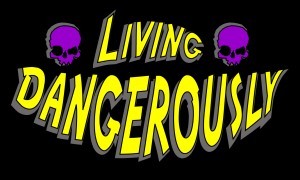Seniors Living Dangerously at Home
Seniors Living Dangerously…
It is no secret that most seniors want to stay in their homes for the duration of their lives. Although this may be a good idea for some, it is a bad idea for others. Every week I hear a story that boggles my mind. Just recently I heard the story of prescription theft by neighbor.
Prescription Thief Story…
Jan is 83 and her neighbor next door has helped her carry groceries in her home. This one day, he notices that Jan just got her prescriptions refilled. As he is helping Jan bring in the groceries, he steals her whole bag of prescriptions while Jan was not looking. Jan was traumatized and in pain because her pain medication was stolen. She told me no longer fell safe in her home.
Basement Squatter Story…
Last month I heard another story of a squatter. John is an 87 year old man. His knees hurt him so he avoids stairs. Because of the stairs, John does not go down to his basement. It turns out that a squatter broke into John’s basement through the window and was living there. The squatter was discovered by John’s daughter who heard noises coming from the basement. John did not hear those noises because he is hard of hearing. When she went down to John’s basement she found a squatter was living there. The basement was trashed, and John’s tools were missing. When police came, they found illegal drugs, and used needles all over the basement, along with a fire arm.
Question is: Are You Living Dangerously at Home?
Poisoning..
I recently came across some very disturbing statistics while taking a safety class. Did you know that more than 14% of all deaths reported to Poison Centers each year are in persons over 60 years of age. Most of these are from unintentional exposures to medications or household chemicals. One would think that it is young kids that are most prone to ingesting toxic chemicals, however older adults are also at risk. Many seniors have at least some dementia and many experience some loss of vision. These are two of the most common conditions that put the elderly at risk for severe or fatal poisoning.
Falls…
Among older adults over 65, falls are the leading cause of injury death. Falls can result in sprains, fractures, hip fracture, or head injury. As we age, our bones become more brittle. Even a minor fall can result in a broken bone. Frail seniors should avoid stairs, uneven payment, uphill, and downhill walk ways, dark hallways. Climbing the stairs in your home becomes a dangerous and risky en devour for many. In many cases the fall results in a fracture, and could have been avoided.
Mixing Up Medications…
Seniors living at home manage their own medication. Missing a dose, or taking a duplicate dose is easy to do for anyone, however this is particularly detrimental to the elderly. Even one missed dose can result in dizziness and cause a fall. Many seniors suffer vision loss and it is difficult for them to see if they dropped a pill, which inadvertently can cause a missed dose and a setback.
Nutrition…
Poor Nutrition can easily become a problem when a senior lives alone. There is no one to prepare meals, which often results in seniors skipping meals, eating snacks, or high sodium processed foods. Once seniors consistently cut back on meals due to the hassle, their appetite decrease which often leads to severe weight loss, under nutrition, or malnutrition.
Crime..
We know that unfortunately many criminals target the elderly for a variety of crimes. Thieves are more likely to target an elderly person living alone for a variety of scams and crimes. Seniors living alone are targeted at higher rates by criminals, because the elderly are considered easy targets. People 60 and over are almost 30% of all fraud complaints, the most of any age group. Aside students, the elderly are the most likely to get burglarized. The elderly are targeted not only for material possessions, but also their prescription drugs.
The Takeaway…
Although some seniors are able to safely stay in their home, others are not. I hope this article gives seniors and their families something to think about. Many of the stories I hear are very avoidable, and cause the seniors immense stress and trauma.


